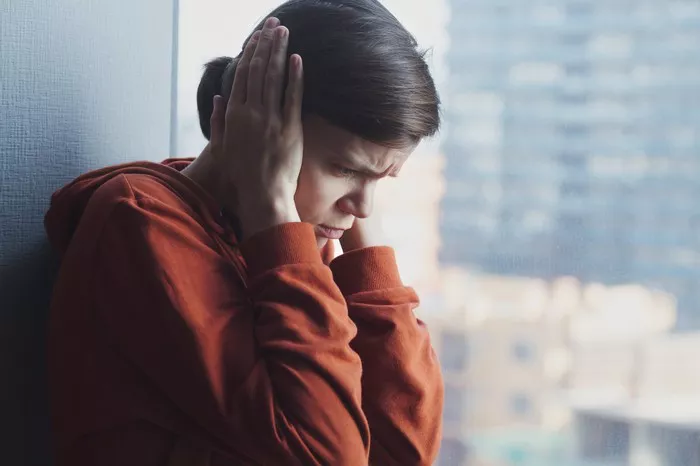As Ukraine endures the ongoing impacts of war, the need for a robust mental health recovery plan has become increasingly urgent. Nearly three years after Russia’s full-scale invasion, the emotional and psychological toll on the Ukrainian population is profound. While many Ukrainians have demonstrated resilience and found ways to continue their lives, the constant shelling, casualties, and uncertainties of wartime living have left lasting scars.
In the aftermath of the invasion, studies revealed a dramatic increase in mental health challenges among Ukrainians, with 55% reporting significant anxiety and 26% meeting the criteria for post-traumatic stress disorder (PTSD). “Our fight for freedom and democracy comes at a heavy price, a price we pay not only in lives but also in the mental and emotional toll on our people,” stated Oksana Zbitnieva, who leads the Ukrainian government’s coordinating center for mental health.
However, restoring mental health in Ukraine is not solely about coping with the ongoing conflict; it requires a comprehensive reimagining of the entire mental health system. This transformation involves enhancing patient care, workforce training, scientific research, and legal reforms, according to a coalition of mental health experts from 12 countries who collaborated with Ukrainian psychiatrists. Their recommendations were recently published in the Lancet Psychiatry medical journal.
The Need for Reform
Currently, Ukraine allocates about 8% of its gross domestic product (GDP) to healthcare, with only 2.5% of that budget dedicated to mental health services. Most of this funding supports psychiatric hospitals and long-term care facilities, a system that is a remnant of the Soviet era, when mental health institutions were weaponized to imprison political dissidents. Today, these facilities can house approximately 30,000 individuals.
The commission advocates for a significant shift towards a community-based model of mental health care. This model would enable people with common mental health issues, such as depression and anxiety, to receive support in non-specialized settings, such as general practitioner offices, while those with more severe conditions would receive care through dedicated mental health centers. Tailoring services to specific populations—veterans, former prisoners of war, and displaced individuals—is crucial for effectively addressing the unique needs of these groups.
Efforts to enact these changes are already underway, with the Ukrainian government considering a new mental health law. “The ongoing reform will replace outdated Soviet psychiatry with a modern system,” Zbitnieva noted.
Targets for Transition
The commission has set ambitious goals for the transformation of Ukraine’s mental health system over the next five to ten years. Key targets include:
Reducing the number of people in hospitals and other inpatient settings by 50%.
Increasing primary care capacity by 16-fold.
Tripling the number of community-based mental health services from 65 to 185 programs.
Doubling the capacity in outpatient settings.
Achieving these targets would necessitate a 45% increase in public spending on mental health. However, this investment could lead to a 37% reduction in out-of-pocket expenses for patients, according to Dan Chisholm, the World Health Organization’s (WHO) mental health lead for Europe. In this scenario, total government spending on mental health would rise to about 4.5% of the national budget.
Workforce Development and Research
Strengthening Ukraine’s mental health workforce is another critical component of this recovery plan. The experts emphasize the need for new residency programs for psychiatrists to extend from two to five years, aligning with European standards. This workforce enhancement is particularly vital, given the disruptions caused by the COVID-19 pandemic and ongoing war, which have adversely affected the education and training of future mental health professionals.
Additionally, the commission highlights the importance of increasing funding for mental health research, which currently receives less than 0.5% of relevant government budgets. To ensure that Ukrainian researchers can compete internationally, investments in high-level research must be integrated into the broader European scientific community by 2030.
The commission notes a concerning trend: applications to Ukrainian medical schools dropped from 25,200 in 2019 to 19,900 in 2023—a decline of 21%. This decrease highlights the need for increased government funding and legal reforms to support these initiatives.
Legal Reforms
To effectively implement these changes, legal reforms are essential. The commission calls for the introduction of mental health laws that limit involuntary interventions, such as institutionalization, and an overhaul of Ukraine’s guardianship system, which currently imposes legal restrictions on individuals with mental health impairments.
Dr. Irina Pinchuk, president of the Ukrainian Psychiatric Association and co-leader of the new commission, acknowledged that “the plan for Ukrainian mental health is ambitious.” However, the goal extends beyond mere psychological recovery; the commission aims for the new system to serve as a model for other countries reevaluating their mental health care approaches.
“It is important that we build this system on the best global evidence and practices,” Zbitnieva emphasized.
Conclusion
The path toward a modernized mental health system in Ukraine is fraught with challenges, but the commitment of international experts and local leaders offers hope for a brighter future. By investing in community-based care, enhancing workforce training, boosting research funding, and enacting legal reforms, Ukraine can build a mental health framework that not only supports those affected by war but also sets a precedent for mental health care worldwide. Through these efforts, Ukrainians can begin to heal, paving the way for a resilient and hopeful society.
You Might Be Interested In:
-
Disturbed Sleep Tops List of Complaints Received on Mental Health Helpline
-
Maternal Serum Folate Levels During Pregnancy Linked to Congenital Heart Disease Risk
-
Key Triggers for Food Allergies in Children After Organ Transplants

